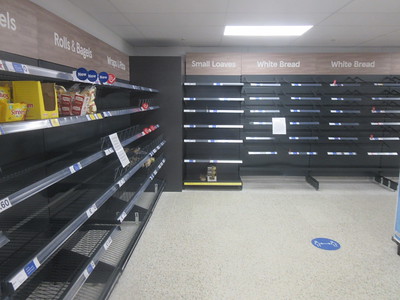Friday 25 February 2022
Historical mistakes repeated
Monday 21 February 2022
Germany and Russia - 20th and 21st century
At the end of the First World War, in June 1919, a peace treaty was signed between the warring parties. It became known as the Treaty of Versailles. The treaty imposed punitive measures against Germany, firmly laying the blame for the conflict with the country, although if blame be apportioned, all were equally culpable.
Germany lost territory and felt humiliated. In the 1920s, the country suffered an economic meltdown, with inflation skyrocketing - at one point, the US dollar was worth 1 million million Mark. Then, over the following 16 years, Adolf Hitler gradually rose to power, promising to make Germany great again. He retook the Saarland and Rhineland areas, which had been taken from Germany. Nobody opposed this aggression. In March 1938, he annexed Austria - with nobody opposing. In September 1938, with mounting concerns over war, the British Prime Minister Neville Chamberlain flew to Munich for talks with Hitler. At the time, the slaughter of World War 1 were still fresh in people's memories, and all thought was to avert another bloody conflict. Hitler reassured Chamberlain, and Neville's famous quote "Peace for our time" was to become the slogan for appeasement. In the early spring of 1939, Germany annexed the Sudetenland area of Czechoslovkia, and occupied the remainder of that country. In September 1939, Nazi Germany invaded Poland, which heralded six years of war.
Fast forward 50 years. In 1991, the Soviet Union disintegrated, the Warsaw Pact of countries also under communist rule collapsed. These included Bulgaria, Romania, Czechoslovakia, East Germany, Hungary and Poland. Russia lost its empire of satellite states that used to be part of the Soviet Union. Think of Lithuania, Latvia and Estonia. Georgia, Belorussia, Uzbekistan, Armenia, Azerbaijan,
Kazakhstan, Kyrgyzstan, Moldova, Turkmenistan, Tajikistan. And -
Ukraine.
Then, along came a former KGB officer, Vladimir Putin. Born in 1952, Mr Putin served in the former German Democratic Republic until that state collapsed in 1990. Vladimir has been prime minister and president of the Russian Federation for more than twenty years. He has enjoyed popularity at the polls, on a ticket of making Russia great again. In fact, it is suggested that he would like to restore the old empire of the Soviet Union. Moves to that effect were seen with an incursion into Georgia in 2008, and the annexation of the Crimean peninsula, part of Ukraine, in 2014. The insurrection in eastern Ukraine, which started in the same year, has been on-going to date. It has led to the establishment of two break-away states around Donetsk and Luhansk. And since the start of 2022, Russia has built up a huge array of its armed forces around Ukraine. To date, 21 February, the tally stands at 190,000. Some of these are positioned in Belarus, ruled by Putin's henchman Alexander Lukashenko. Although frantic talks continue to date to avert war, signs are ominous that the pretext for an invasion of Ukraine is already being created. Is the diplomacy another attempt at appeasement, to achieve peace for our time? As I type this, news comes through that Russia has accused Ukraine of invading its territory and killed three troops - a claim hotly denied by Kyiv. A possible pretext for an attack.
We saw what happened when Adolf Hitler promised to make Germany great again in the 1930s. I do not expect Vladimir Putin to like being compared to Adolf Hitler. Russia suffered greatly through Nazi Germany's invasion of its territory between 1941 and 1944. It lost 20 million of its popultion as a result. But an invasion of Ukraine could lead to a European conflagration which could have an equally devastating consequence.
Just became Putin wants to make Russia great again.
Saturday 12 February 2022
Not ferry good
This winter has turned into a very windy if not stormy affair. A fortnight ago, we suffered gusts in excess of 90 mph, which caused some damage. 'Ordinary' gales have punctuated the time since, churning up the seas between the island and the mainland and leading to frequent cancellations of the ferry service. This week saw nearly three days without a ferry, leading to scenes like this in the supermarket.

On other routes, the vessels concerned have suffered technical breakdowns or were away for their annual refit.
The breakdowns can sometimes be traced back to the age of the boat; I think the eldest ship is 34 years old. You'd think that these would be replaced as time goes on, but no such plans appear to exist. Worse than that, two ferries that should have been in service 4 years ago are still in the shipyard, being built. Problems of a political, business or technical nature have led to that.
In the coming week, a major storm is pencilled in for Wednesday. The forecast has only just about moved within the 5-day timeframe for reliability, so we'll see if the 90+ mph gusts materialise. Hopefully, they don't.